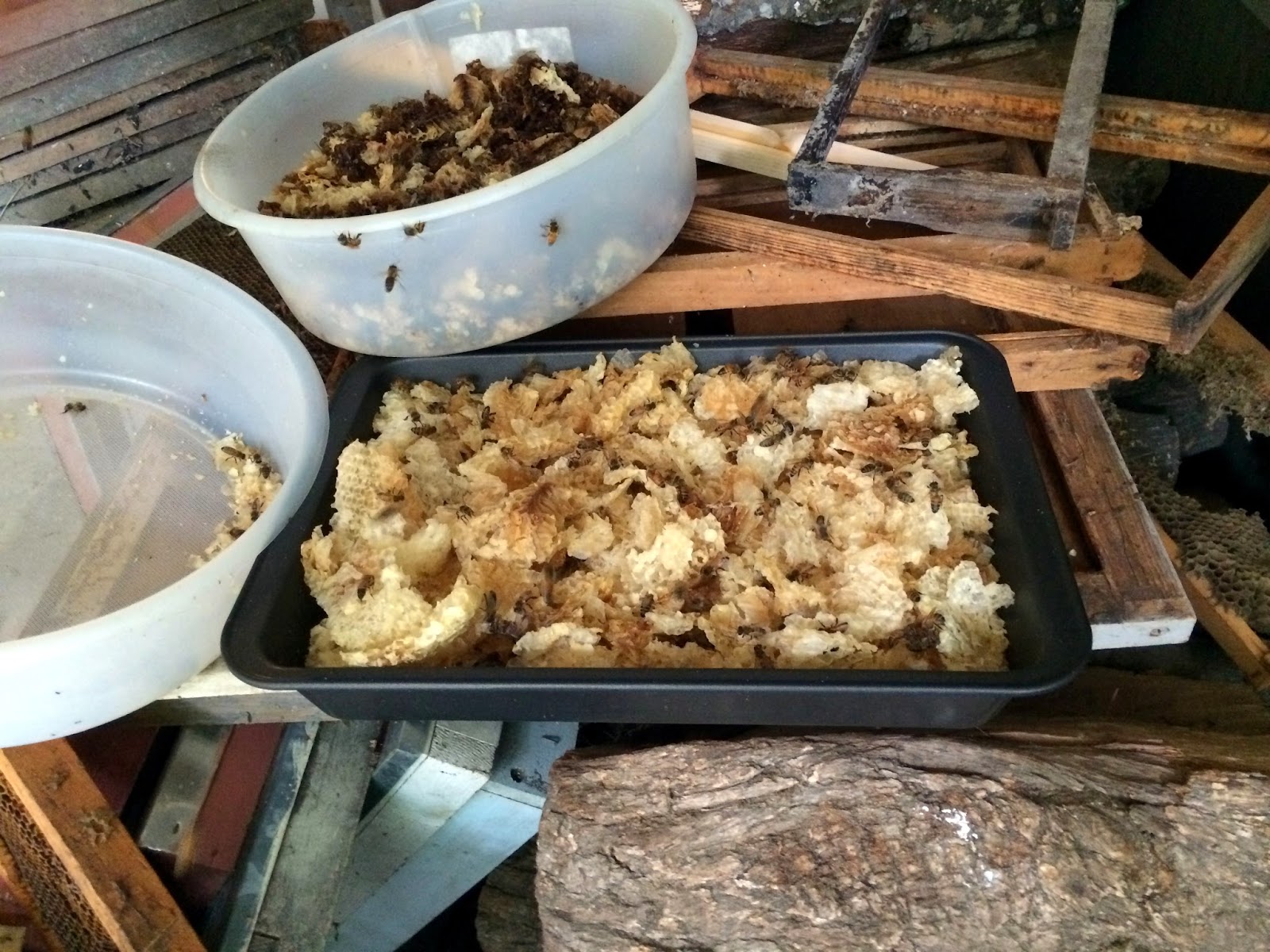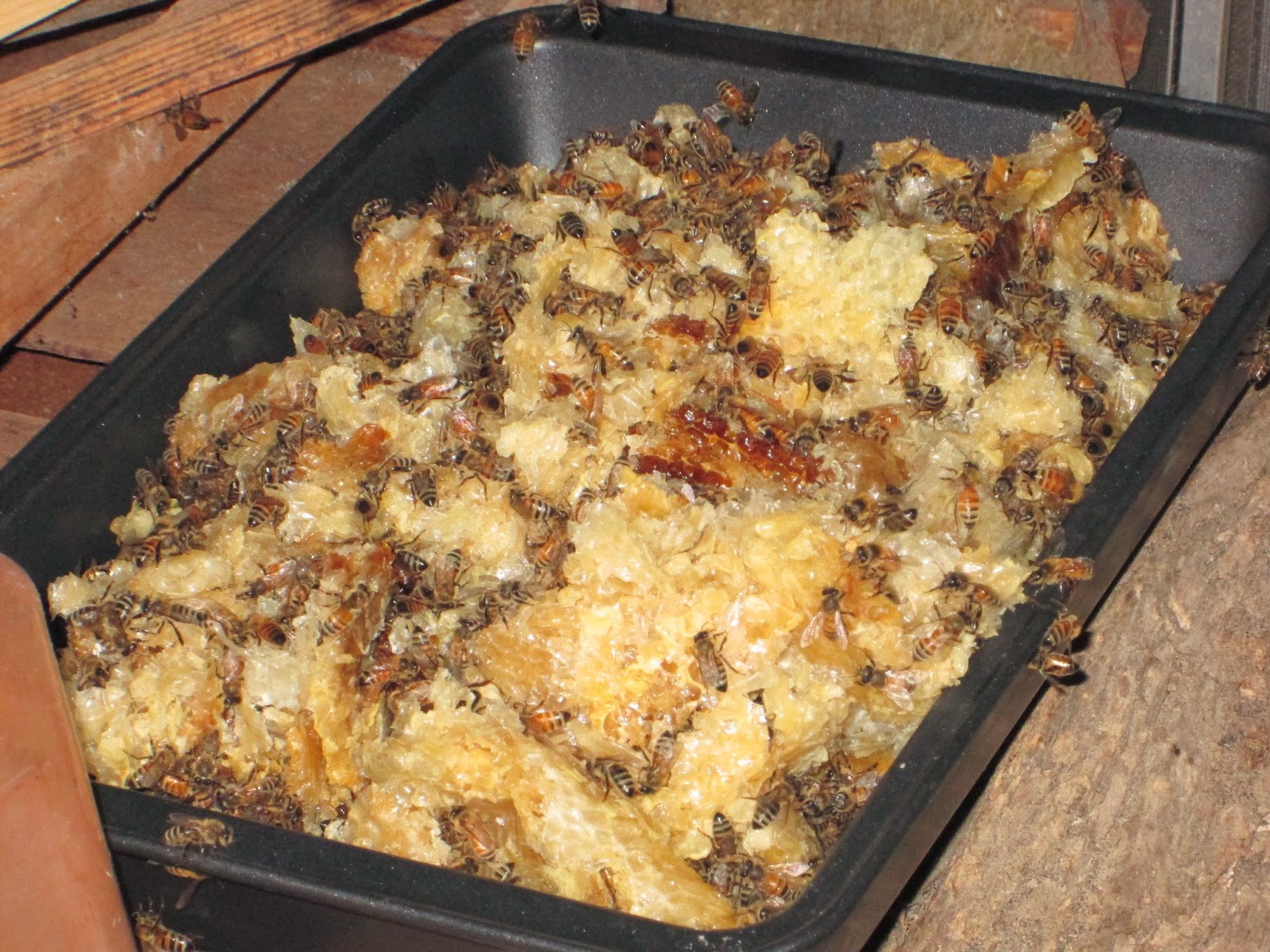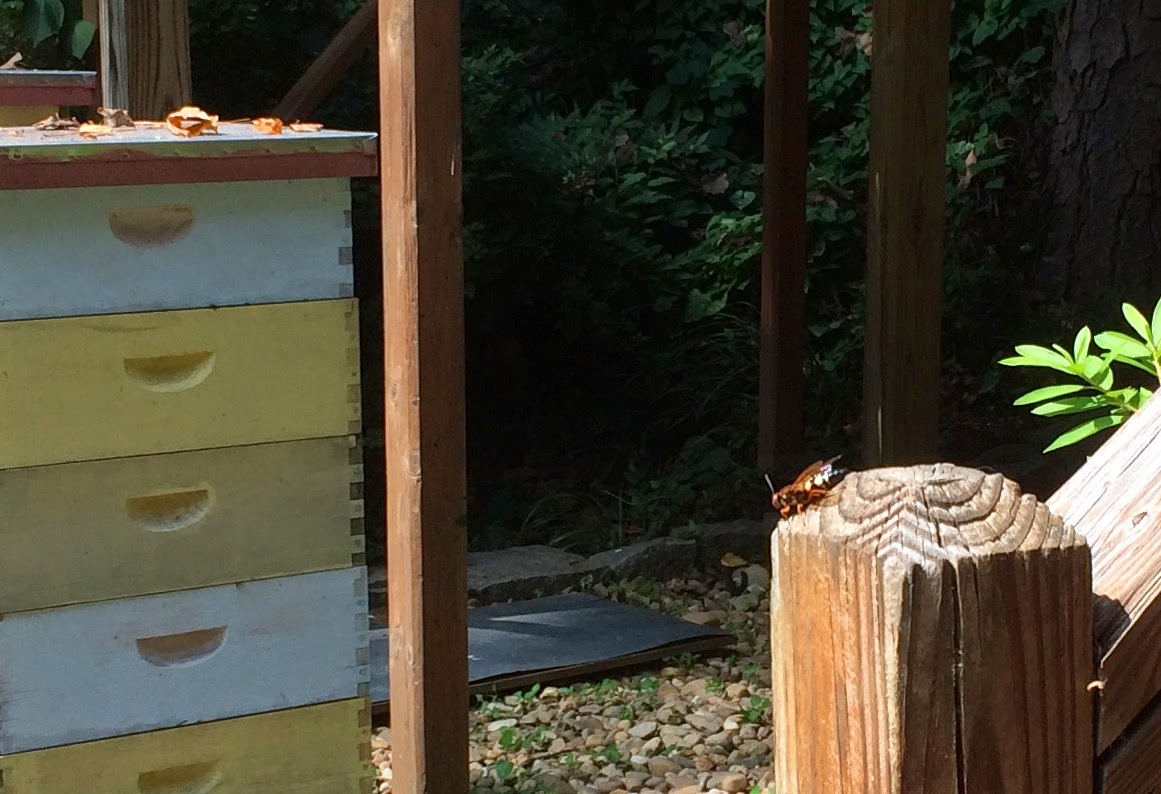Now that I am in my ninth year of beekeeping, stings are relative in their impact on me. Often I get stung on my hands since I don't usually wear gloves, but most of the time within a half hour, I have no idea where I was stung or how many times.
Don't get me wrong - I often inspect hives and don't get stung at all, but probably do get stung about once a week during bee season.
Julia and I went to Chastain to check on the hives there. We have had three hives there, but she took the swarm hive she collected and took it to her mountain house to gather sourwood honey. So there are two hives now at Chastain: her hive which overwintered there and my hive which was a swarm collected by a beekeeper who wanted to donate it to Chastain for teaching purposes.
First we opened her hive. It was doing well, but not busting at the seam with bees. There were plenty of bees in the hive. We saw a lot of larvae being pulled out of their cells by other bees. This larvae was white and all the way to the stage where their eyes are developing. We wondered if this were a particularly hygienic queen or if the bees had been affected by pesticide.
I love the last photo where there was old comb and the bees added to it this year with new.
We have been told that the city doesn't use pesticides on the golf course. Apparently they can't afford it so they just keep the course well cut. (The hives are in the center of one of Atlanta's biggest parks and golf courses). However we noticed an area right by the hives that had been sprayed with Round-up and when we spoke to the directory of the Chastain Conservancy, he told us that they use a good bit of Round-up in the area of the quonset hut where the hives are.
Julia's hive did have eggs, an obviously thriving queen and stored honey.
In the process of the inspection, she went to her car to get a frame. Her ten frame boxes included one box that only had 9 in it and she had an extra frame in her car. We had draped the hive with pillow cases to keep the bees calm, but when Julia returned, she rapidly pulled off the pillow case and as I reached for a frame, I got nailed in the third finger of my left hand.
I walked away and flicked (I thought) the stinger out. A few minutes later I realized I had not gotten the stinger so I used my fingernail to get it out for good. My finger felt tight and swollen. It has continued to feel like that all day. A couple of hours after the incident, I noticed another stinger in the joint of my finger. No wonder it continued to hurt so much. It is now hours after the incident and my finger is still swollen and hurts.
We opened my hive to bad news - no queen. The hive had requeened itself recently and we had noticed at the last inspection that the queen appeared to have gone off to get mated. But she clearly did not succeed and I did not bring over a frame of brood and eggs every week as I should have until I clearly had a laying new queen.
We went through frame and frame and there was no sign of a queen. Julia very generously gave me a frame of eggs from her hive and we put it into the queenless hive. Hopefully they will make themselves queenright before winter. I'll try to do a better job of paying attention to their status and add more brood and eggs if necessary.
You may notice the air-cast on my right foot. I've had to wear it now for almost a month for a torn ligament. It really has hampered my beekeeping. I was so grateful for Julia who could bend her leg and pick up things, etc. in a way that I cannot with this air-cast on my leg.




















